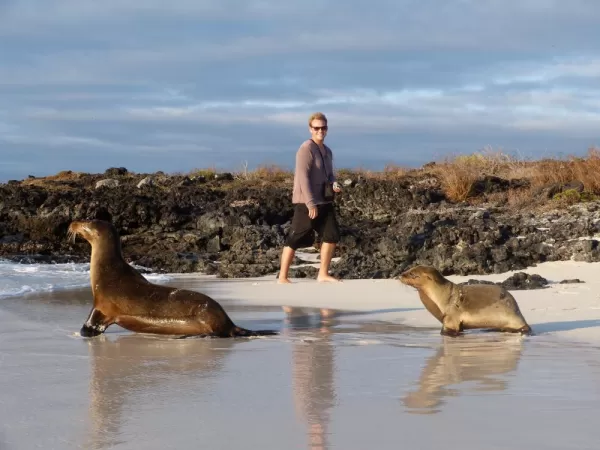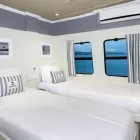Before landing, take a dinghy ride along the eastern arm of the caldera. As you approach, the soaring 25 m/80 ft high walls become overwhelming. Sometimes, a Galapagos fur seal rests, or a seabird is nesting on one of the ledges at the base. Then, hike and overcome the steep stairs from the landing dock to a bush of palo santo shrubs on top. Red-footed boobies gratefully use these scarce nesting places; so that they don’t have to nest on the rocky ground. Upon arriving at the edge of the rim, the bushes open up, and you can enjoy panoramic views, a strong sea breeze, and the excellent flying skills of countless seabirds. Following the exposed rim, pass first the Nazca boobies and finally reach the extensive storm petrel nesting places, where, if you’re lucky, you can spot the well-camouflaged short-eared owl hunting for food!
Activities: Hiking, Kayaking, Dinghy Ride, and Snorkeling
Difficulty: Easy
Darwin Bay is inside the submerged caldera of Genovesa, with a diameter of more than 1.5 km/1 mi and almost 200 m/650 ft deep. The small area will surprise you repeatedly, walking along a coral sand beach, crossing barren lava formations and creeks, passing tidal pools and shrubs, and, further ahead, following the top of some cliffs. With these peaceful surroundings, every species has occupied its ecological niche (or habitat) without disturbing others.
Activities: Hiking, Kayaking, Dinghy Ride, and Snorkeling
Difficulty: Easy

















